Renault Scénic vs Volvo EX90 – Which model is better for everyday use?
Everyday use, family trips or long-distance drives – here’s where the differences show.
Discover whether Renault Scénic or Volvo EX90 fits your lifestyle better.
Costs and Efficiency:
Price and efficiency are key factors when choosing a car – and this is often where the real differences emerge.
Renault Scénic has a decisively advantage in terms of price – it starts at 34600 £, while the Volvo EX90 costs 73700 £. That’s a price difference of around 39077 £.
In terms of energy consumption, the advantage goes to the Renault Scénic: with 16.60 kWh per 100 km, it’s barely noticeable more efficient than the Volvo EX90 with 17.80 kWh. That’s a difference of about 1.20 kWh.
As for range, the Volvo EX90 performs barely noticeable better – achieving up to 620 km, about 22 km more than the Renault Scénic.
Engine and Performance:
Power, torque and acceleration say a lot about how a car feels on the road. This is where you see which model delivers more driving dynamics.
When it comes to engine power, the Volvo EX90 has a significantly edge – offering 680 HP compared to 218 HP. That’s roughly 462 HP more horsepower.
In acceleration from 0 to 100 km/h, the Volvo EX90 is clearly quicker – completing the sprint in 4.20 s, while the Renault Scénic takes 7.90 s. That’s about 3.70 s faster.
In terms of top speed, the Volvo EX90 performs barely noticeable better – reaching 180 km/h, while the Renault Scénic tops out at 170 km/h. The difference is around 10 km/h.
There’s also a difference in torque: Volvo EX90 pulls clearly stronger with 870 Nm compared to 300 Nm. That’s about 570 Nm difference.
Space and Everyday Use:
Whether family car or daily driver – which one offers more room, flexibility and comfort?
Seats: Volvo EX90 offers clearly perceptible more seating capacity – 7 vs 5.
In curb weight, Renault Scénic is significantly lighter – 1822 kg compared to 2556 kg. The difference is around 734 kg.
In terms of boot space, the Renault Scénic offers significantly more room – 545 L compared to 324 L. That’s a difference of about 221 L.
In maximum load capacity, the Volvo EX90 performs noticeable better – up to 2135 L, which is about 465 L more than the Renault Scénic.
When it comes to payload, Volvo EX90 to a small extent takes the win – 585 kg compared to 518 kg. That’s a difference of about 67 kg.
Who wins the race?
The Volvo EX90 proves to be dominates this comparison and therefore becomes our DriveDuel Champion!
Volvo EX90 is the better all-rounder in this comparison.
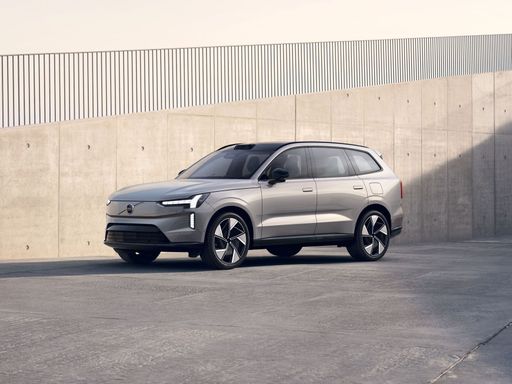
Volvo EX90
Renault Scénic
The Renault Scénic, with its distinctive design, captures attention through its sleek and modern aesthetic. Its interior is thoughtfully crafted, offering ample space and comfort for family travel or long journeys. The Scénic stands out with a strong emphasis on practicality, making it an ideal choice for those seeking both style and functionality in a vehicle.
details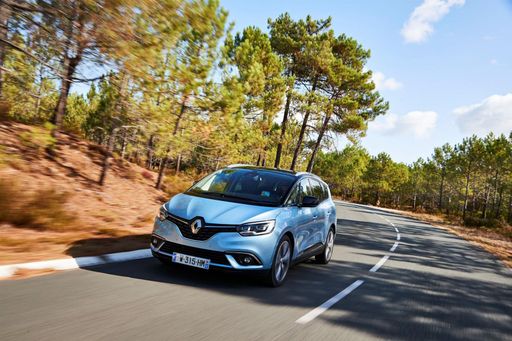 @ Renault
@ Renault
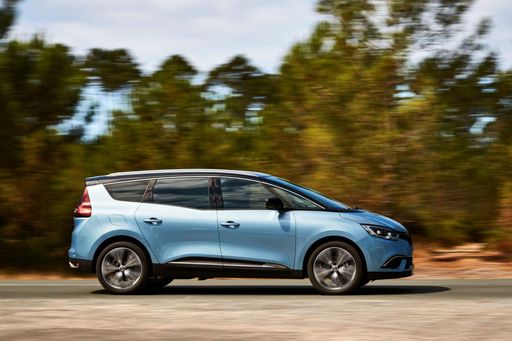 @ Renault
@ Renault
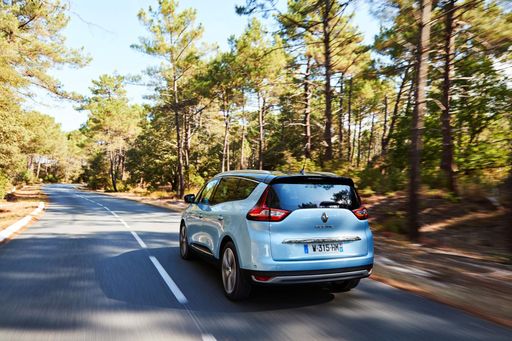 @ Renault
@ Renault
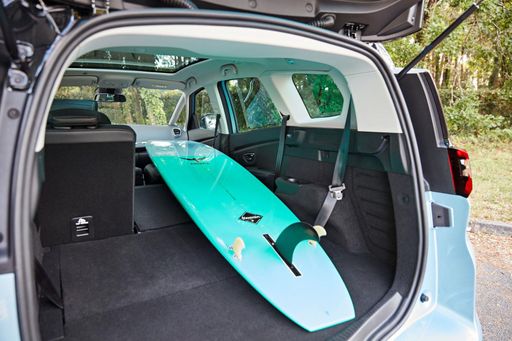 @ Renault
@ Renault
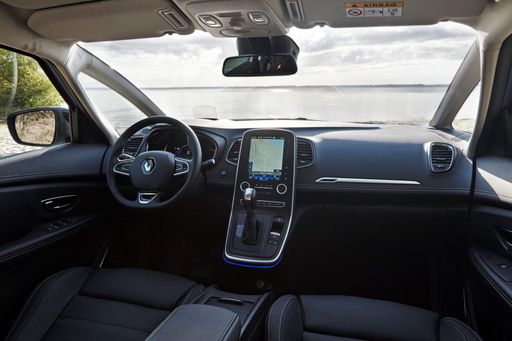 @ Renault
@ Renault
Volvo EX90
The Volvo EX90 represents a new era of luxury electric vehicles, combining sophisticated design with cutting-edge technology. Its interior offers a serene environment, enhanced by premium materials and a state-of-the-art infotainment system that ensures both comfort and connectivity. Safety remains paramount, with the EX90 featuring advanced driver assistance features to provide peace of mind on every journey.
details @ media.volvocars.com
@ media.volvocars.com
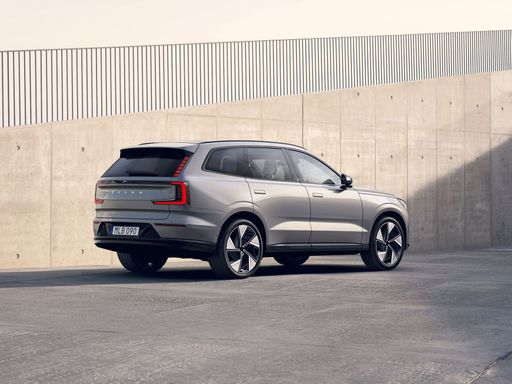 @ media.volvocars.com
@ media.volvocars.com
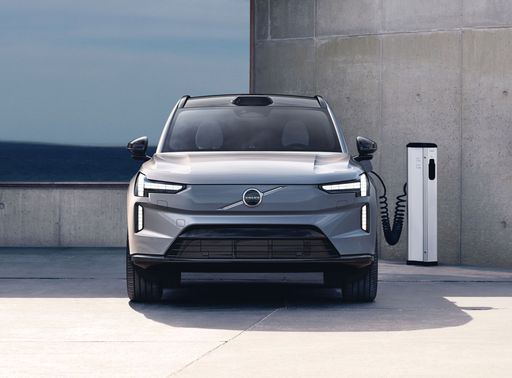 @ media.volvocars.com
@ media.volvocars.com
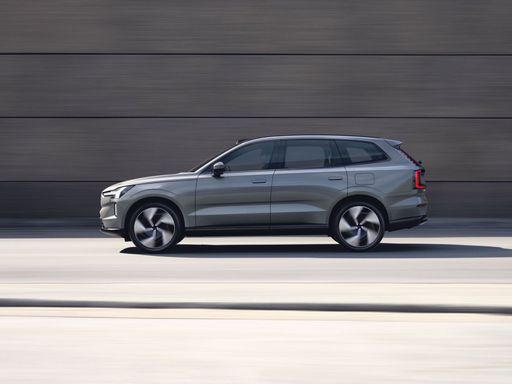 @ media.volvocars.com
@ media.volvocars.com
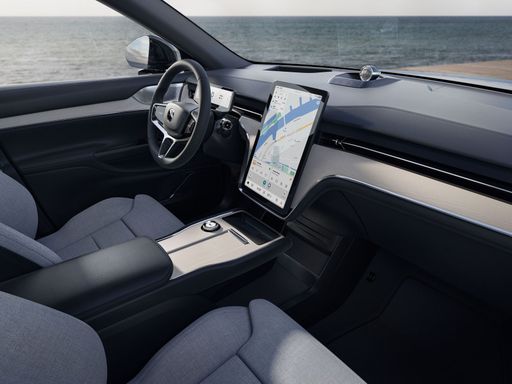 @ media.volvocars.com
@ media.volvocars.com
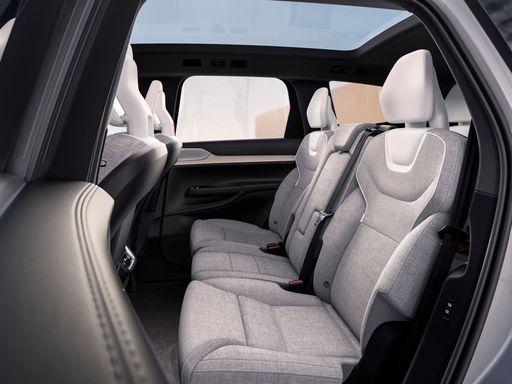 @ media.volvocars.com
@ media.volvocars.com

|

|
|
|
|
Costs and Consumption |
|
|---|---|
|
Price
34600 - 44000 £
|
Price
73700 - 94100 £
|
|
Consumption L/100km
-
|
Consumption L/100km
-
|
|
Consumption kWh/100km
16.6 - 17.5 kWh
|
Consumption kWh/100km
17.8 - 19.3 kWh
|
|
Electric Range
420 - 598 km
|
Electric Range
570 - 620 km
|
|
Battery Capacity
-
|
Battery Capacity
88 - 102 kWh
|
|
co2
0 g/km
|
co2
0 g/km
|
|
Fuel tank capacity
-
|
Fuel tank capacity
-
|
Dimensions and Body |
|
|---|---|
|
Body Type
SUV
|
Body Type
SUV
|
|
Seats
5
|
Seats
6 - 7
|
|
Doors
5
|
Doors
5
|
|
Curb weight
1822 - 1927 kg
|
Curb weight
2556 - 2764 kg
|
|
Trunk capacity
545 L
|
Trunk capacity
324 L
|
|
Length
4470 mm
|
Length
5037 mm
|
|
Width
1864 mm
|
Width
1964 mm
|
|
Height
1571 mm
|
Height
1744 mm
|
|
Max trunk capacity
1670 L
|
Max trunk capacity
2082 - 2135 L
|
|
Payload
514 - 518 kg
|
Payload
375 - 585 kg
|
Engine and Performance |
|
|---|---|
|
Engine Type
Electric
|
Engine Type
Electric
|
|
Transmission
Automatic
|
Transmission
Automatic
|
|
Transmission Detail
Reduction Gearbox
|
Transmission Detail
Reduction Gearbox
|
|
Drive Type
Front-Wheel Drive
|
Drive Type
Rear-Wheel Drive, All-Wheel Drive
|
|
Power HP
170 - 218 HP
|
Power HP
333 - 680 HP
|
|
Acceleration 0-100km/h
7.9 - 8.6 s
|
Acceleration 0-100km/h
4.2 - 6.8 s
|
|
Max Speed
150 - 170 km/h
|
Max Speed
180 km/h
|
|
Torque
280 - 300 Nm
|
Torque
480 - 870 Nm
|
|
Number of Cylinders
-
|
Number of Cylinders
-
|
|
Power kW
125 - 160 kW
|
Power kW
245 - 500 kW
|
|
Engine capacity
-
|
Engine capacity
-
|
General |
|
|---|---|
|
Model Year
2025
|
Model Year
2025
|
|
CO2 Efficiency Class
A
|
CO2 Efficiency Class
A
|
|
Brand
Renault
|
Brand
Volvo
|
What drive types are available for the Renault Scénic?
Available configurations include Front-Wheel Drive.
The prices and data displayed are estimates based on German list prices and may vary by country. This information is not legally binding.
